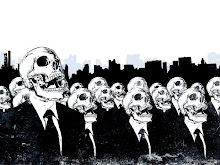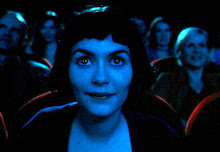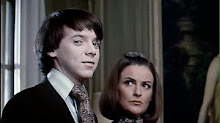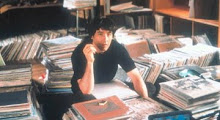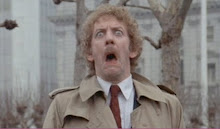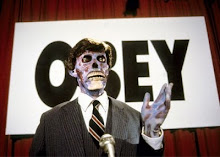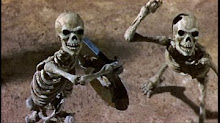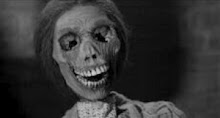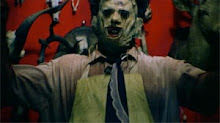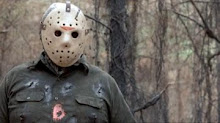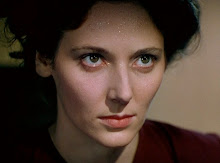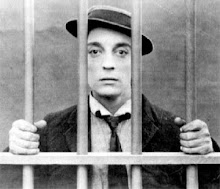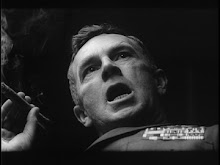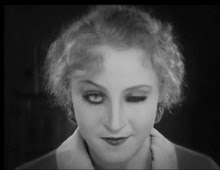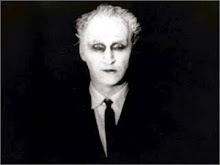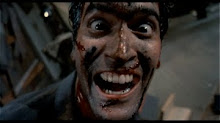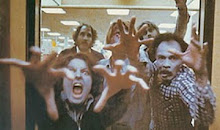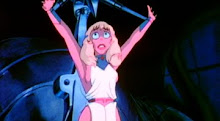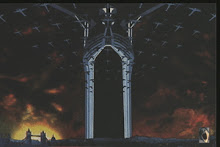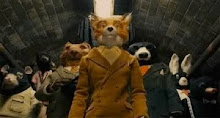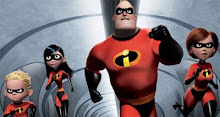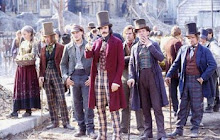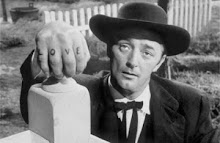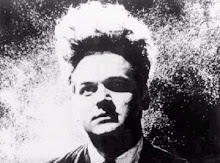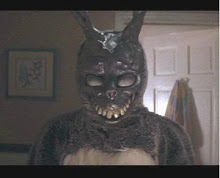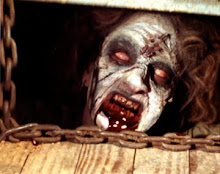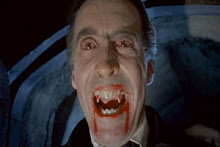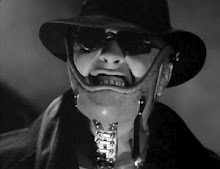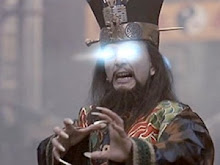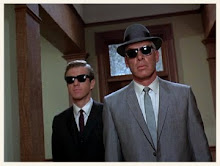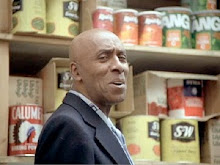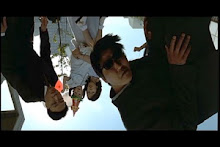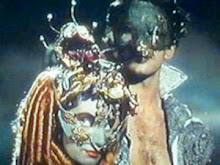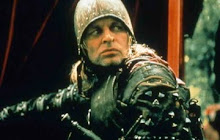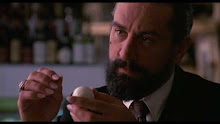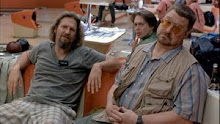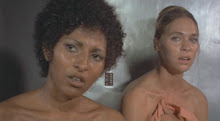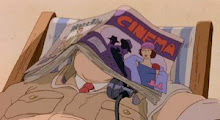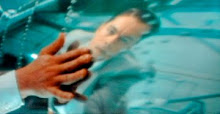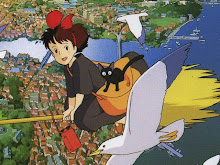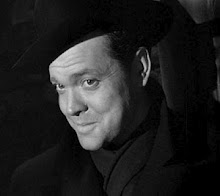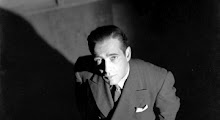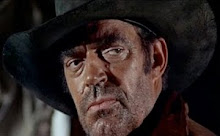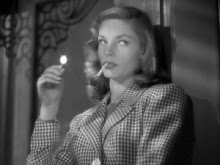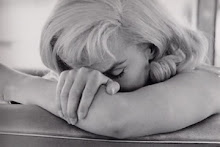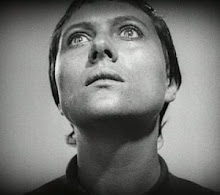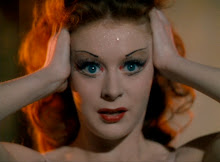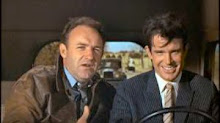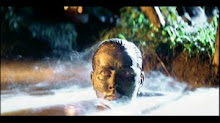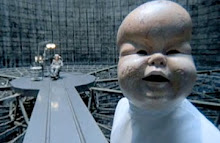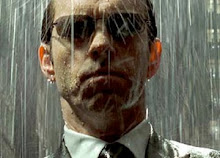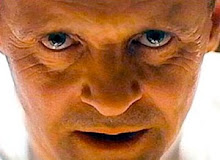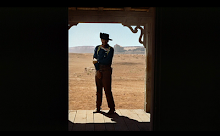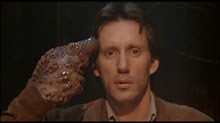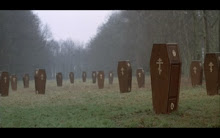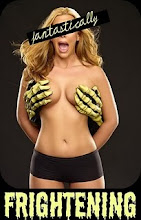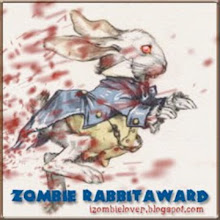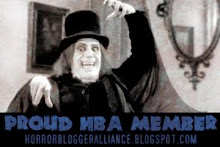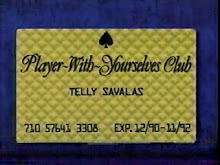Sunday, April 28, 2013
Sightseers
There is a fine art to waiting for the other shoe to drop. Even in the early scenes of Sightseers there is a sense of menace, of things being decidely off, that cannot be accounted for simply by the cringe humor that the film's early scenes peddle in. There is the sense that at any moment the floor might give way underneath you. Ben Wheatly's previous film Kill List also trucked in such a sense, but while Kill List felt entirely subservient to its tacked on centeral gimmick, the punch line in Sightseers feels much more organic and hits all the harder.
Sightseers is centered on Tina, a British woman in her mid thirties who still lives with her relentlessly cruel mother. One of those people who is so beaten down, so used to being unhappy as a matter of routine, that the idea of taking a fairly mundane road trip in her boyfriend's RV in order to view the country side and some of England's duller museums, seems not merely an escape but a promise of barely conceivably proportions.
So of course things immediately go sour. I'm not going to reveal just what happens in Sightseers, since as I said waiting for the shoe to drop is kind of the whole point (though it's probably not all that hard to figure out). Suffice it to say, though one might guess what Chris's particular tic is, there is no preparation for how fast and how far things curdle. People like to throw around the term chemistry when it comes to relationships, forgetting that chemistry can also produce a noxious cloud. What happens between Tina and Chris is absolutely toxic, they bring out the worst in eachother allowing them to go places they never would have dared on their own.
Wheatly's stroke of brilliance is that he portrays all of this fairly low key. It's easy to imagine a hyped up American version, proud of how shocking and subversive its being. Indeed one can name more than a handful of films that follow Sightseers basic pattern. Wheatly on the other hand treats the whole thing like a comedy of manners. There's certainly some nasty business in Sightseers, but Wheatly doesn't underline it, he lets the characters actions speak for themselves. They're not trying to make any big statement. They're not trying to be subversive. They're just trying to go on holiday and they can't figure out why all this other stuff keeps getting in the way. They're just dealing with it as it comes. It's not that Wheatly is pulling any punches, he gets right up into the nitty gritty of their actions (and in one scene is even able to make the tired old cue Season Of The Witch send chills up the spine) It's this very lack of romanticism that makes Sightseers memorable. Have the same actions done by "romantic" outlaws and you'd just have another run of the mill Doom Generation want to be. But the sight of a pair of homely, somewhat doughy, British thirty somethings doing what Tina and Chris do is somehow appalling. It's like watching Tim and Dawngo on a killing spree. And frankly we expect better of the British.
Sightseers is a ghastly truly black comedy (you know you've got a good dark comedy when one of the best punchlines is a groan of disapointment when it's revealed someone hasn't died). Wheatly's made three distinct films in three genres in three years. There's something distinctly Mephistophilian about that pace. I may not have loved all of them, but he's emerging as one of the most distinctive English filmmakers working today, I look forward to what he does next with equal parts dread and anticipation.
Thursday, April 25, 2013
Weekend
So six (yeesh) months ago in order to promote Son Of Danse
Macabre, I offered to reward anyone who bought the book with a free review of
their choice. This I did, with the exception of four requests. I could give
plenty of excuses for why I wasn’t able to get around to these, hectic
holidays, other projects, personal and professional messes. The real reason is
much more simple. I am a man of low moral character and my mother would be
ashamed of me.
That out of the way, it’s time for me to wrap up my long
overdue commitment, so here the first of the final four, the others should
follow in fairly rapid succession (knock on wood).
I’ve written about this before, but I should reiterate that
as a rule Godard films leave me more or less completely cold. I believe the choice
between Godard and Truffaut is one of those defining Beatles V. Rolling Stones
decisions that doesn’t merely point towards your tastes but defines them.
Godard movies are closed circuits to me, po faced, married to their time, and
ultimately shallow. Precocious in the worst sense of the word.
So somewhat contrarily I welcome situations where I have to see
Godard films. Getting to cross a work of the canon off the list is always a
worthwhile chore, particularly one that I would have little motivation to seek
out on my own. And the idea of reading the film as horror had a certain amount
of intrigue to it. Maybe all I needed to shake things up was a shift of perspective.
As you might have guessed from the preamble, Weekend did
little to shift my position on Godard.
Weekend follows a horridly venal married couple who in the
film’s long prologue separately plot to murder one another, after they murder
the wife’s Father (jointly this time) for his inheritance. On the way to do the
deed they find themselves constantly waylaid by Car Wrecks (which would be a fine gag if it struck one as more than warmed over Bunuel), the general decay of society, people who do pantomine in the woods and this being
Goddard the politics of the chic.
Seeking an avenue into Weekend as horror proves difficult,
whether one is interpreting the mounting absurdities they encounter as a
literal purgatory (which in fairness there is textual support for), or taking the apocalypse that surrounds the heroes as the literal big one (tougher to swallow). More likely is the interpretation of Weekend as your averagel “Hell is other
people but these people in particular,” riff. In the film’s
most (or is it 2nd most) famous scene the couple get in yet another
car wreck and the woman screams in horror over her ruined handbag, caring
for material goods instead of the the people in the crash or herself. As satire this doesn’t rise
much above Godard nudging you in the ribs and saying, “Man what a Gorgon
amirite?” Not a lot of depth there.
And ultimately its this, the impossibility of investing in these characters as people. The naked contempt that makes the film invalid as a work of horror. Horror requires sympathy, empathy. Godard has none. Surrealism is all well and good but
for horror to work their has to be some core of relatable or at least
recognizable human behavior. To have a character not comprehend what is
happening to them is one thing. To have them not care is quite another. To have the film end with one of the married couple presumably eating the other would be a fine punchline for a horror movie, if not for the fact that Godard so clearly believes that its just what these people deserve.
Far from being distressed by the state of their world, the couple at the center of Weekend except all
the bizarre shit that happens to them with what has to be reckoned as damn near
a state of zen. Whether its mimes in the
woods, or people who break the fourth wall in order to deliver long serious lecture
about Black Militantism, nothing seems to leave much of an impression. It
wouldn’t be so bad if not for the nagging suspicion that Godard had the balls
to want us to find this all profound somehow. It’s like watching a Laurel And
Hardy two reeler in which Ollie allows Stan to get raped and then makes jazz
hands at the camera and yells, “It’s like the class struggle man!!!! It’s
deeeep.”
Ironically it’s the film’s other contender for most famous
shot, an 8 minute tracking shot of a traffic jam that is normally cited as an
audience endurance test that was one of the few moments in the film that I
found bearable. Yes it may be long, and it may end with a beat as heavy handed
as anything else in the film, but for a few minutes at least we have color and
choreography, cinematic innovation, effort for God sake effort, instead of
listless pious affect.
The problem is that Weekend just doesn’t have much more
going on in its pretty little head than the protaginists it so vitrolically
condemns for not having much anything going on in their pretty little heads.
What’s the thematic depth of Weekend? That the rich are materialstic, morally
dubious, and shallow? Stop the freaking presses. Had Godard shuffled out
infront of the camera and said in his best Droopy, “You know what? These people
suck.” Not much would have been lost. Godard has no aim but to show that these people,
their class, and- well basically everyone they meet are grotesqueries. I have
always preferred another artist who once observed that we are all
grotesqueries.
...
Once again this post was made in support of Son Of Danse Macabre, available on The Kindle and Nook.
...
Once again this post was made in support of Son Of Danse Macabre, available on The Kindle and Nook.
Tuesday, April 9, 2013
John Dies At The End (DVD)
Note: A Screener was provided for this review.
On an intellectual, or formal, or aesthetic level, or some
kind of level somewhere, I understand that films based on novels must stand on
their own, and should be judged separate from the source, and that a fidelity,
any kind of fidelity, to that source is, or may be, irrelevant. I have
understood this as a workable theory for some time now, but have repeatedly
failed to put it into practice. If I'm listening to someone complain about a
film adaptation that I liked, based on a book I haven't read, I'm able to make
the case pretty forcefully. Similarly, on the rare occasions that I read the
book after seeing the film, it's impossible to whip up the same kind of
frustration over changes made, because no changes have been made. If I liked
the film, and later see how many liberties were taken, my enjoyment is pretty
much unaffected because I got to the film first. The book and film are safely
independent of each other. But I can't apply that logic when coming at it from
the other direction.
I wrote as mixed a review as I’ve ever written for John Dies
At The End. Most of my ambivalence, I will freely admit, coming from the fact
that the damn thing just isn’t the book. I am aware that this is both unfair to
the makers of the film, and unhelpful to readers who haven’t read the book, but
there we are. As Bill Ryan notes above in his infinite wisdom, knowing what you should be able to do and being able to do it are two different things.
Given a second viewing on DVD with expectations adjusted it
is easier to appreciate John Dies At The End for what it is rather than getting
hung up on what it isn’t. It’s a fun film, creative and anarchic, shot with a
real sense of style and with a genial goofy sense of humor, but it strips away
much of the melancholy, alienation and depth that made the book extraordinary.
I’ve said before that Jason Pargin is the Douglas Adams of Horror. An author
who uses parody and humor to somehow address the big questions with more
finesse than most “straight” genre fiction. Fitting that John Dies At The End
ended up rather on the level of the 2005 Hitchhiker’s Guide To The Galaxy. A
lively adaptation, made by people who clearly care about the source material
that never quite manages to escape the nagging feeling that it misses the point
entirely.
There is much to admire about Coscarelli version of John. My
appreciation for Coscarelli’s screenplay, which manages to preserve much of the
novel by recontextualizing it, has increased. The amount he was able to achieve
on a clearly limited budget is downright impressive (though the animated scene
sticks out even moreso as an ill advised experiment this time around). The
cast, both the unknowns and the “ringers” like Doug Jones, Clancy Brown and
Paul Giamatti get into the spirit admirably. It is a damn good time at the frightshow. It
just could have been more.
Interestingly enough the deleted scenes reveal that some of
the darker material was filmed. And at least I finally have an answer for why
the “Sheer Naked Horror of this place” monologue wasn’t included (ole Shitload
couldn’t quite pull it off). But why Father Maraconi’s deliciously unsettling
monologue was cut I have no idea.
In addition to the Deleted scenes. Magnolia has put together
a good package to back up the film. With a commentary from Coscarelli and the
principles, a few featurettes, including one of the effects that is refreshingly
how to, and a candid interview with Giamatti. Disappointingly Pargin himself is
nowhere to be found on the disc, not even as a talking head during the
featurette, or a background voice in the commentary. It’s a puzzling and
disappointing absence.
I may remain slightly let down by John, but it’s a hard
movie to be too mad at. Entertaining, creative, made with equal parts love and
competency. If only more modern day genre films could say the same.
...
You can read more thoughts on the novel of John Dies At The End in my book Son Of Danse Macabre.
...
You can read more thoughts on the novel of John Dies At The End in my book Son Of Danse Macabre.
Thursday, April 4, 2013
Ebert
So much can be said but you always valued simplicity so I'll keep things concise. I would not be the same person without your work. Let alone the same writer. No more can be asked of any artist. So thank you. Thank you. Thank you.
Monday, April 1, 2013
White Elephant: The Girlfriend Experience
This is part of the Annual White Elephant Blogothon. Huzzah
I had to do a double take when I broke the red wax seal on the carrion scented, black envelope that delivers the proclamation of doom, er- film selected for that years White Elephant when it arrived. The Girlfriend Experience? Really? A hole in a director’s oeuvre that I’d been meaning to fill (and yes but lets pretend no). A minor film surely, but one that I wasn’t even aware had a particularly bad reputation (and given that it has a 64% percent on Rotten Tomatoes and a 66% on metacrtic I’m still not so sure it does). Heck it was a movie I had been downright meaning to see, albeit more in a High Fidelity, "I haven’t seen Evil Dead 2 yet" way, rather than the good old fashioned frothing demand way (And am I the only one annoyed that they are clearly describing Army Of Darkness in that scene). But then it’s the traps you don’t see coming that get you, like the Wile Coyote when he’s chasing The Roadrunner and steps through a carefully concealed hole and loses his left leg to a pungee stick.
I had to do a double take when I broke the red wax seal on the carrion scented, black envelope that delivers the proclamation of doom, er- film selected for that years White Elephant when it arrived. The Girlfriend Experience? Really? A hole in a director’s oeuvre that I’d been meaning to fill (and yes but lets pretend no). A minor film surely, but one that I wasn’t even aware had a particularly bad reputation (and given that it has a 64% percent on Rotten Tomatoes and a 66% on metacrtic I’m still not so sure it does). Heck it was a movie I had been downright meaning to see, albeit more in a High Fidelity, "I haven’t seen Evil Dead 2 yet" way, rather than the good old fashioned frothing demand way (And am I the only one annoyed that they are clearly describing Army Of Darkness in that scene). But then it’s the traps you don’t see coming that get you, like the Wile Coyote when he’s chasing The Roadrunner and steps through a carefully concealed hole and loses his left leg to a pungee stick.
So The Girlfriend Experience AKA Oy In This Economy? The
Girlfriend Experience isn’t bad, but I can see why my unknown sender may have
thought it a trap. It’s one of those films that walks the very thin line
between elliptical and repetitive, following a call girl whose services include
the illusion of a loving relationship. Grey is poised at the center of the film
as Chelsea/Christine, who is either an enigmatic and opaque or really just that
shallow, it depends on what angle you tilt your head. She fulfills her clients
desires less for sex (and for anyone hopefully drawn in by the ridiculously
unrepresentive poster of an opened mouthed Grey in what looks like pre-orgasmic
ecstasy know that this is not that, indeed there is hardly any sex in the film)
and more for the experience of being more interesting than they are. Because if
a woman who looks like Sasha Grey wants to know what they think then there must
be something to them.
This is an interesting basis for a film, though it might
have worked better as a short, even at seventy seven minutes it feels as though
we get some repetition. More problematic is Soderbergh’s decision to carve a
big fat 2009 right into the center of the movies forehead. Every film is a
product of its time, but virtually every scene in The Girlfriend Experience
contains someone more or less looking at the camera and going “This economy
AMIRITE!!!” You see its ironic because they’re all obsessed with economic
transactions, and the Chelsea’s profession reduces first sex and then human
relationships to simple economic transactions (in one of the film’s best lines
she notes, “That if they wanted the real me they wouldn’t be paying.”) which is
something we could have probably figured out without the Soderbergh breaking
out the yellow highlighter. Anyway in the middle of the economic downturn
Chelsea’s upper class clients can no longer afford jet setting trips, dinners
out, or high class call girls. At its worst The Girlfriend Experience plays
like some bizarre cinematic argument for trickle down economics.
The Girlfriend Experience isn’t bad Soderbergh by any means
but it is certainly minor Soderbergh. Stylistically he’s in a low key
thematically he’s unambitious. It’s clear his fascination, indeed the reason
for doing the project was his star, and he gets some interesting results from
her. All in all it’s not a bad
film, but considering that last time I had to do, Diary Of A Cannibal I suppose
I was owed some Karma.
...
You want to reduce something to an economic component, look I'm turning participation in this blogothon into a shill for my book. It's everywhere man like violence in breakfast cereals....
Subscribe to:
Posts (Atom)





